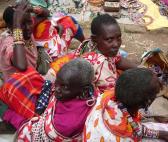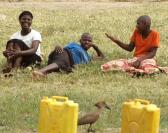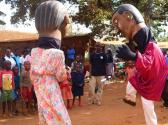MP3 PreventionRx
Rationale
Twenty-five years into the HIV pandemic,HIV prevention strategies remain urgently needed. No single HIV prevention strategy will control the HIV epidemic; thus, multi-layered and multi-component prevention will be needed.
More than 2.8 million new HIV infections occurred worldwide during 2008, the majority in sub-Saharan Africa, the region hardest hit by the pandemic. Despite evidence of partial efficacy for several interventions, currently no single intervention offers a “magic bullet.” Instead, a multi-component package of synergistic, evidence-based, biomedical and behavioral interventions must be assembled and tailored to be appropriate, acceptable, and deliverable to priority subpopulations for risk reduction at individual, dyadic, and sexual network levels. With the PreventionRx, we propose to develop a coordinated, multi-component HIV prevention package of evidence-based biomedical and behavioral interventions that will be individually-tailored and targeted to maximize coverage and impact on HIV incidence in an African population.
Study Description
Our Specific Aims are to:
- Conduct epidemiologic analyses, systematic reviews, and mathematical modeling to identify modifiable determinants of heterosexual HIV transmission with the highest population-attributable fraction in sub-Saharan Africa, estimate the impact of targeted prevention strategies directed at these determinants, and select components of a prevention package based on these analyses.
- Pilot data collection for identification of highest-risk individuals (HIV discordant couples, HIV-infected persons, and HIV-negative persons with high-risk behaviors) with integration and targeting of behavioral and biomedical prevention interventions into population-based home-based HIV counseling and testing (HBCT) programs.
- Design a community-randomized effectiveness trial of a comprehensive, targeted, biomedical (e.g., male circumcision, ART) and behavioral HIV prevention package for East and Southern Africa in the context of HBCT.
Results
Results are expected in 2012.






















